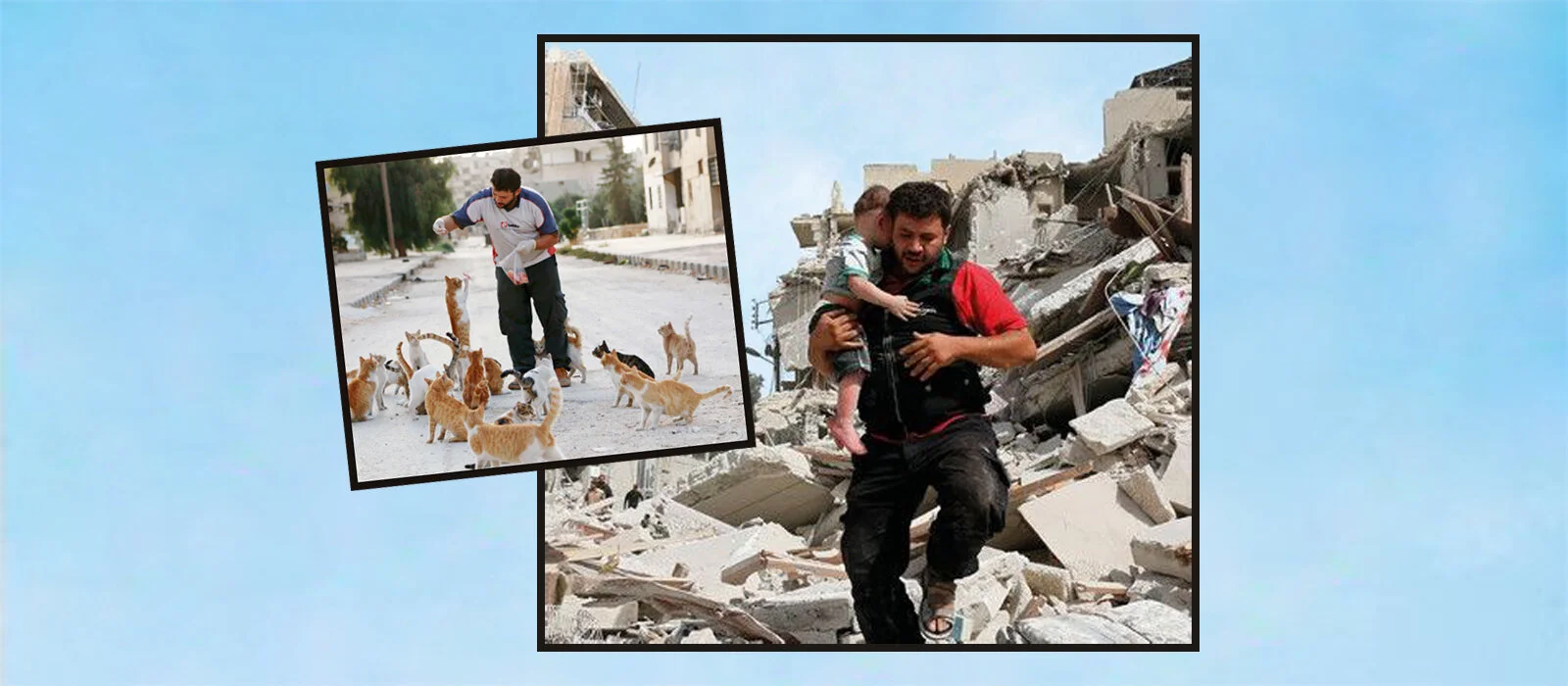The Last Sanctuary in Aleppo
By: Alaa Aljaleel, Diana Darke / Narrated By: Peter Noble
Length: 7 hrs and 15 mins
Seriously! One person CAN make a difference!
Full disclosure: The Last Sanctuary in Aleppo was one of the audiobooks we did for our little club. It was not enjoyed by all. And here’s why: Don’t expect in-depth stories about the rescues, and do expect many stories of Facebook and social media. I think those were the top two things my sister disliked about it, and she’s right.
It’s just that I really thought Alaa Aljaleel was very MUCH one man who found his calling when his world turned dark and fell into chaos, who stayed behind to serve all he loved rather than emigrate with his family.
It opens with a brief and wondrous history of Aleppo, a place of art, culture, history, and a place that, despite the occasional minor brouhaha, was known for its acceptance of all who lived there; a bit of a melting pot if you will.
All that changed with the Assads coming to power and instituting an authoritarian to totalitarian regime. Jews who had once found safety in Aleppo were driven out, having to give up all they owned. Diversity was no longer a byword, and what with Rebel forces striking back and hiding out in Aleppo, the city has been destroyed by Assad and with Russian assistance.
After getting his family to safety, Alaa stayed and used his van as an ambulance to transport those dug out from debris, those strafed by airpower, those wounded by shrapnel and bombs. Along the way, he saw and rescued animals, notably cats. I liked how he used prayers from the Quran to show how Islam guides followers to be kind to animals, and that cats are actually a trifle, maybe just a trifle… favored. Alaa was taught at any early age, was shown how to care for animals, how to love and treat cats. And he thinks nothing of having a rescued cat on the dashboard as he zooms around neighborhoods, in search of people to help, or in getting the wounded to underground hospitals (Hospitals above-ground have come to be targets for bombing).
Yes there’s plenty about social media in this book, but I chalked that up to the fact that all that guided the world’s response came from social media. It wasn’t our government or the U.N. that stepped in to help; no, it wasn’t until posts of children covered in blood, missing limbs, in distress or shocked into catatonic stupors, that the world and its people were mobilized into action. It’s been just the humdrum everyday people who have stepped in to offer assistance, and that only came with Facebook and other outlets sending out information.
Apparently the “Cat Man of Aleppo” as Alaa is known became rather popular, and he stays in the war-torn country to this day. I checked him out on Facebook and found him under “Ernesto’s Sanctuary” (You’ll hear some of Ernesto’s story in the book), and there’s a grand photo/banner of an enclosure with cats playing and moseying, and humans with open arms, and it looks like a place of love and kindness. A balm to the senses after some of the senseless brutality of the book, I tell you.
And this can be a brutal and aggravating book. The Assad regime, and its Russian counterparts, bombs willy nilly, except when it doesn’t: Then it’s extremely targeted bombing, getting first responders and those who’re driven to help when they come upon victims—there’s always a second attack to follow the initial destruction. Hospitals are bombed, roads and refugees are bombed. Alaa’s first sanctuary is bombed, and what cats survived, later succumbed to chlorine gas attacks (See? That’s where the book gets aggravating. We heard of gas/chemical attacks, and even that didn’t move anyone to step in to stop it). Precious few were left, but with the help of unknown hundreds and thousands of everyday people, he was given the funds to start another sanctuary.
Lest ye think this is all animals all the time, no not at all. Alaa cares just as much for humans as he does for the animals he loves. There are some truly beautiful contemplations of religion, and he believes all religions have a base that starts in love; he would never NOT lend a hand based on someone not being Muslim. I found his thoughts on breaking fasts during Ramadan lovely as to him, the food he tastes, the water he drinks, is a true gift and blessing; it’s a sign of love. He shares food with 2,000 others (More assistance offered and given via social media!), and to him it’s a divine Communion with his fellow man. Nothing is taken lightly, and at no point does he think anything is his due. He is grateful for it all.
Peter Noble narrates this really quite well; I can’t vouch for his pronunciation of all the foreign lingo, but at least he never hesitates so that the story flows well and is never hindered by stumbling. And he kinda reminds me of, say, the Poor Man’s Simon Vance—he has the same sort of warm tones, the same pauses and rhythms that Vance has. Which, NATurally means I was delighted and was kept engaged throughout.
This week’s Listening was devoted to individuals stepping up to the plate and embracing hardship, doing the right thing even at great cost. I couldn’t be any more pleased than I was by this story.
It was an honor, and knowing that he must endure memories of all he COULDn’t do, memories of those he couldn’t save but had to leave trapped beneath tons of rubble, all I can do is humbly offer my gratitude for all he DID do. A little heart goes a long way…
As an Amazon Associate, I earn from qualifying purchases.




